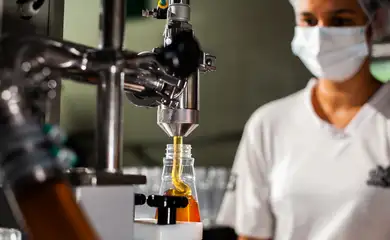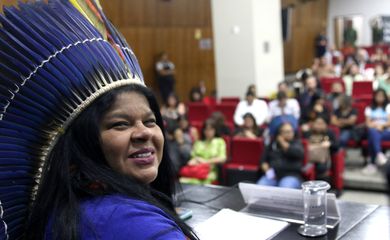Biodiversity brings new business models to the Amazon

Research from the Amazon Bio-Business Center (CBA), in Manaus, casts light on new business models with innovative and sustainable solutions based on the biodiversity found in the world’s largest rainforest. These are materials and technologies make the transition to a green economy possible through the development of traditional and indigenous communities in the region.

In May 2023, the letter B in the acronym CBA changed from bio-technology to bio-business, in a bid to reinforce the idea that the center goes beyond being a source of products and solutions, and is also a place of opportunities in a burgeoning market.
According to Rodrigo Rollemberg, secretary for Green Economy, Decarbonization, and Bioindustry at Brazil’s Ministry of Development, Industry, Trade, and Services, the autonomy achieved last year has opened up possibilities to turn research developed with natural resources from the Amazon into real business models.
“One of the great challenges and one of the missions of Brazilian industrial policy today is to replace supplies from the petrochemical industry with Brazilian biomass,” he noted.
Rollemberg said the sustainable technology projects that have been developed have led, for instance, to the large-scale sale of plastic made of Brazil nut husk, as a substitute for the petrochemical material in the car industry.
Other promising projects, Rollemberg added, are currently being negotiated with the food, pharmaceutical, and IT sectors, as well as the energy and agricultural supplies markets.
“The idea is that we don’t just carry out research here. We should also become a hub with a vision for open innovation, with spaces for incubating offices, start-up laboratories, and an environment for discussing business,” said CBA Director of Operations Caio Perecin.
Added value
Among the main concerns with biodiversity products is adding value from the beginning of the chain all the way to the end product, improving initial quality and providing professional training at every stage of production. One example of research conducted at CBA focused on verticalizing the açaí chain. Açaí usually leaves the region at low prices and is processed and sold in other countries for up to 10 times the initial price.
In order to benefit the chain, researchers have attempted to identify the processing capacity for the pharmaceutical and nutritional industries. Edson Pablo Silva, manager of CBA’s Natural Products department, argued that some of the studies are already at the clinical trials stage, with companies showing an interest in making business.
“We created a nutraceutical drink from açaí, rich in phenolic compounds [with antioxidant power]. Our intention was to develop this product and work on some neglected diseases—atherosclerosis, liver disease, cardiovascular disease, and obesity,” he pointed out.
In product development, concern is also shown with the processing of all the by-products resulting from the process. “From the by-products of this drink, we have developed bakery products that can be added to school meals. This means we can produce wholemeal bread with a lower percentage of wheat and greater nutritional value. As our wheat is imported, this also reduces the impact of the dollar on these products,” he went on to say.
As it stands today, the facility boasts 26 applied research laboratories across six operating centers for natural products, materials and energy, plant technology, bio-supplies, and industrial technology, in addition to the analytical center to support companies. A network of hotels totaling 27 apartments will also be reactivated for corporate accommodation.
In addition to a management contract with the Ministry of Development, Industry, Trade, and Services for financial transfers—which guarantees the maintenance and modernization of the building—adding up to some BRL 12 million a year, CBA aims to raise BRL 120 million in four years by contracting and developing innovative projects and services, the center’s operations director added.
“The idea is to direct 30 percent of these funds to supporting the production chains of traditional communities,” Perecin stated.







